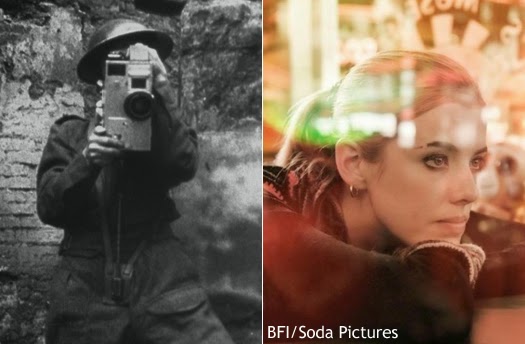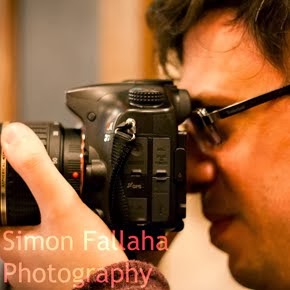Movies about capturing and being captured stand out at Derry-Londonderry's Foyle Film Festival
A Holocaust documentary about a Holocaust documentary, André Singer's Night Will Fall centres on the challenge of witnessing and experiencing atrocity from close range, and in doing so depicts the largest mass murder in history in a starkly unfamiliar manner.
Towards the end of World War II, trained cameramen amongst British, and later Russian and American, soldiers set out to capture footage of those captured for a Sidney Bernstein documentary, one that will ultimately take almost seven decades to see the light of day. They genuinely encounter sights no one should want to see, a horrifying yet enlightening sight for them back then and for us at this moment in time.
After entering the concentration camps blindfolded, for the first time, the soldiers' open their eyes on the doll-like corpses of typhus victims. To get too close would spook out any soldier to the point of insanity; it is wisely left for the interviewed survivors, among them Schindler's List producer Branko Lustig, to document the near death experiences. When one survivor says, "You spend years preparing to die and somehow you're still here", everything about their God-like view of the Allied soldiers makes perfect sense.
From such quiet, matter-of-fact testimonies, and additional interviews with historians and those involved with Bernstein's film, Night Will Fall earns an emotional numbness to compliment its soberly frightening sights. The danger of present-day audiences becoming alienated from overexposure to the horrors is averted many times over: the sight of the SS's grave digging alone, for example, recalls the mistakes made from trying to bury the past instead of dealing with it, and the German apathy of the period harshly reflects that inaction can be even more damaging than action. Night Will Fall neither glosses over its horrors nor flatters its audience: it isn't a shocking wake up call followed by a comforting resolution, but instead strongly reminds viewers of, and draws viewers into, a cold and hellish landscape. The story of the film that didn't make it, too, gives invaluable heft to the production, extra beats to the once damaged and now healing hearts of the survivors and witnesses.
The documented oppression of the Holocaust victims finds a more individualised, closer-to-home metaphor in Lily O'Connor, the central character in Bryn Higgins' excellent Electricity. Opening with a depressing image of bodies floating in mid air, the film immediately recalls the HAL-esque "eye" that opens Matt Reeves' superb Dawn Of The Planet Of The Apes: emptiness and lack of direction amidst darkness. Lily, wonderfully played by Agyness Deyn, is all those things personified – she is an epilepsy sufferer who courageously refuses to be entrapped by either her illness or the stigma against epileptics, yet she genuinely feels she has nowhere to go.
Flashing lights make Lily ill at ease. The art in her family bedroom, at one point edgy and at other times colourful, matches her state of mind. Lily is the kind who feels suffocation in excessive confinement, a point emphasized brilliantly by extremely shaky hand-held close ups: she does not want to be a prisoner but accepts that she is a prisoner of sorts. In her world it feels like almost everyone will be there for you when you're in trouble, but your dependence on others holds you back from fully growing up. Lily has trained herself to deal with the abuse she received since her youth, but is unable to cope without support. Thus, she is alternately headstrong and helpless: attributes which come wholeheartedly to the fore when the death of her mother turns the lives of Lily and brother Barry upside down.
Once their mother's house is sold, Lily suggests that the proceeds should be split equally between herself, Barry and long-lost brother Mikey (Christian Cooke), and, despite Barry's warnings, goes on a quest to track Mikey down in London. Alas, for Lily it's a London as unforgiving as another Lily's London ("When you look with your eyes, everything seems nice, but when you look twice, you can see it's all lies") - a whirlwind of mistrust and superficiality. Relief is eventually forthcoming in the form of the equally alienated and warmly friendly Mel (Being Human's Lenora Crichlow, right at home as a sympathetic ghost in this broken shell) and from here on in – save one unfortunate, heavy-handed plot strand about a street beggar – Electricity compellingly wraps themes of friendship, fear, the need for acceptance and survival around a tautly mannered narrative. It is frighteningly and disturbingly truthful both to its central illness and to its characters, making the heart-rending and heart-warming case that while superficial acceptance is common, true acceptance, much harder to find, is invaluable. If Night Will Fall is crucial as documentation, Electricity is up close and personal – a dark, despairing near-masterpiece.















0 comments:
Post a Comment